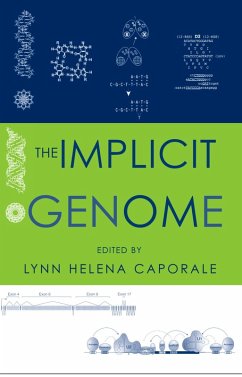Most analyses assume that genomes are to be read as linear text, much as a sequence of nucleotides can be translated into a sequence of amino acids by looking in a table. However, information can evolve in genomes with distinct forms of representation, such as in the structure of DNA or RNA and/or the relationship between nucleotide sequences. Such information has importance to biology yet is largely unexpected and unexplored. As described in this volume, much of this information, through mechanisms ranging from alternative splicing of RNA to the generation of bacterial coat protein diversity, affects the probability of distinct types of alterations in the nucleic acid sequence. Some genomic DNA sequences affect genome stability, handling and organization, with implications for the robustness of lineages over evolutionary time. The examples reviewed in this volume, taken from a broad range of biological organisms, both extend our view of the nature of information encoded within genomes, and can deepen our appreciation of the power of natural selection, through which this information, in its various forms, has emerged.
Dieser Download kann aus rechtlichen Gründen nur mit Rechnungsadresse in A, B, BG, CY, CZ, D, DK, EW, E, FIN, F, GR, HR, H, IRL, I, LT, L, LR, M, NL, PL, P, R, S, SLO, SK ausgeliefert werden.









